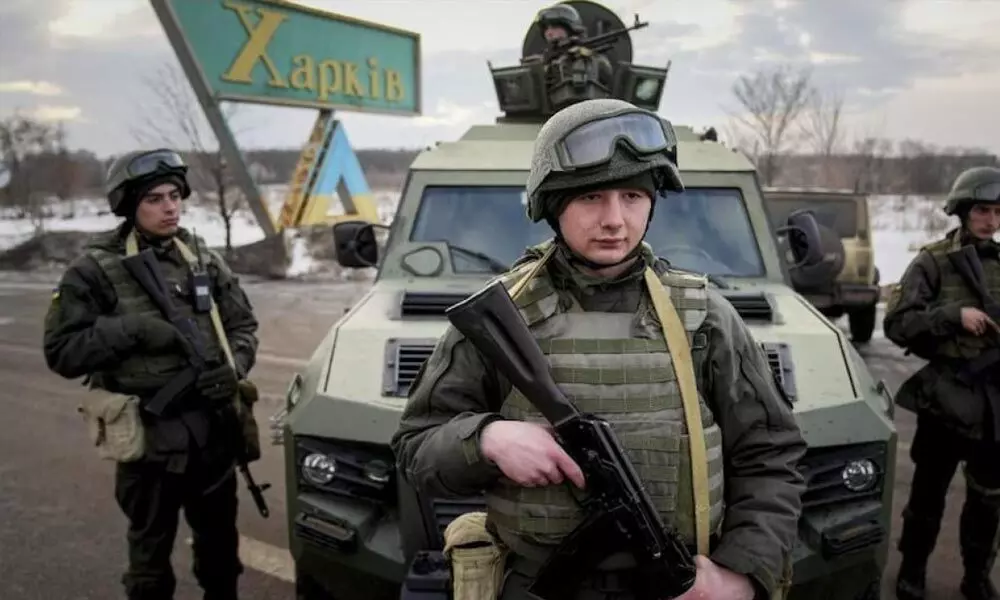How Ukraine crises taking globalisation in reverse gear
Russian invasion of Ukraine has massively altered the geopolitics. After World War-II, world order is facing the maximum challenge and is likely to change post this war.
image for illustrative purpose

Russian invasion of Ukraine has massively altered the geopolitics. After World War-II, world order is facing the maximum challenge and is likely to change post this war. When global order changes, it is nothing but natural that trade relations will definitely change. Therefore, the concept of globalisation is expected to see variations to established norms. Glimpses of this phenomenon are already visible. Western nations including the US and EU have weaponised trade relations by imposing severe economic sanctions on Russia. From withdrawal of MFN (most favourite nation) status to normal trade relations, many countries have leveraged trade channels including import and export bans on Russia to stop the war. Similarly, Russia has also reciprocated by withdrawing availability of various critical metal resources and technology among others.
Without divulging into the merits or demerits of such steps, it can be safely assumed that the basic tenets of globalisation have been severely violated due to this war. Firstly, trade relations have been weaponised by the warring parties. While Russia has used oil and natural gas as a tool to garner support, the US and EU have used many financial tools including banning from SWIFT, cutting off Russian banks and Central Bank, denying access to country's forex reserve, confiscating private property of many oligarchs among others. Against this backdrop, the basic tenet of globalisation that is globe as a village with interlinkage in trade relationships have been thrown out of the window.
As per rules of World Trade Organisation, nations can take protective trade measures to protect national interest within certain limit. But such sweeping restriction is going to pose very difficult questions on global trade relationships in coming years. Moreover, this conflict has also prompted countries to deny technology to rival nations. Technology transfer sits at the core of wellbeing of human civilization. While niche defence technologies can be denied, if critical technologies with regard to healthcare, energy and other such sectors are denied as a fallout of this war, this will immensely damage the current wave of globalisation. Ironically, early instances of this phenomena are already visible.
Globalisation has made the world interconnected and interdependent. For instance, many nations in Africa and West Asia are staring at high food inflation as the bread basket of Europe, Ukraine faces the wrath of Russian invasion. The Russia-Ukraine conflict, therefore, is posing serious challenges to the very foundation of globalisation in multiple ways. As the world prays for an early end to this crisis, India as a country has to navigate swiftly amidst this crisis. Be it energy or critical technology, the country is dependent on many nations for sustaining its GDP growth. In this perspective, it has to be self-reliant in the medium term in many sectors to protect its economy from such exigencies. The government's move on Make in India and Atmanirbhar Bharat are good initiatives in this direction. As the world order changes, those countries will emerge stronger which can take care of their needs on their own without depending much on other nations. In this regard, India has to work on missionary mode to protect its interest as the established norms of globalisation face serious challenge.

